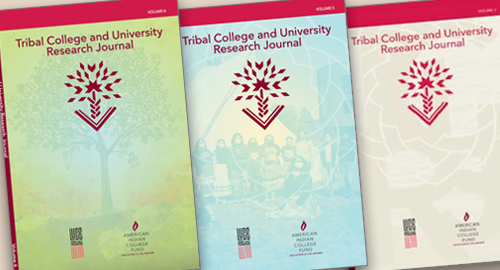To ensure that Native parents and communities control the education of their children while strengthening and creating a national dialogue about indigenous culture-based teacher education, the American Indian College Fund is co-sponsoring a pre-conference work session and will join four sessions on Native teacher education at the National Indian Education Association (NIEA) convention and trade show in Hartford, Conn. October 10-13, 2018 at the Connecticut Convention Center.
“Lifting Our Voices for Native Teacher Education: Creating A Native Teacher Education Network (NPEN),” an invitation-only pre-conference work session, will bring together educators and community members on October 10, 2018 from 8 a.m. – 2 p.m. The work session will unveil NIEA’s new initiative to create a national Native Professional Educators Network (NPEN) to provide a national voice for strengthening Indigenous culture-based teacher education programs, shared practice, and models in ways that serve high concentration Indigenous communities, Indigenous immersion language programs/schools, and Native-focused and culture-based based programs/schools through four critical areas of focus. These areas include Native community vibrancy through education; Indigenous knowledge, pedagogy and Praxis (CBE); and Native teacher education programs (pre-service, induction and professional development, and community-based practicum).
Presenters include the NIEA Native Educator Education and Development (NEED) Committee members renée holt (Diné / Nez Perce), Washington State University; Keiki Kawaiʻaeʻa (Native Hawaiian), University of Hawaiʻi at Hilo; Jeremy Garcia (Hopi/Tewa) University of Arizona; Valerie Shirley (Diné), University of Arizona; and Lolly Ac’aralek Carpluk (Yup’ik), University of Alaska at Fairbanks. Tarajean Yazzie-Mintz (Diné), American Indian College Fund, will facilitate the pre-conference work session.
The four conference workshops include:
Workshop 1: Moving Towards Native Community Vibrancy through Teacher Education and Development, Thursday, October 11, 10:30 – 11:45 a.m., Room 12. This interactive session is dedicated to exploring how tribal colleges, communities, and early learning centers are revitalizing Native communities and families by strengthening Indigenous teacher training and development programming. Educators engaged in community-based programming across a diversity of institutions, non-profit organizations, and communities will share strategies to strengthen vibrant Indigenous communities. Tarajean Yazzie-Mintz (Diné), American Indian College Fund, and Lolly Ac’aralek Carpluk (Yup’ik), University of Alaska at Fairbanks, will facilitate the session.
Workshop 2: Uplifting Indigenous Knowledge and Practices in Teacher Education, Thursday, October 11, 1:00 – 2:15 p.m., Room 22. Attendees will explore current efforts to prepare Indigenous pre-service teachers to indigenize curriculum and pedagogy in ways that acknowledge the unique contexts and realities of Indigenous communities and education. Specifically, panelists will share experiences of privileging Indigenous knowledge systems and languages in their respective teacher education programs.
Presenters include: Valerie Shirley (Diné), University of Arizona; Jeremy Garcia (Hopi/Tewa), University of Arizona; Celia Gonzales, (Yoeme), University of Arizona; renée holt (Diné/Nez Perce), Washington State University; and Tipiziwin Tolman (Standing Rock Sioux Tribe), Washington State University.
Workshop 3: Ensuring the Vibrancy of Native Teacher Education Programs through Indigenous Accreditation Process, Thursday, Oct. 11, 2:30-3:45 p.m., Room 12. This workshop will describe the rationale for and implementation of an Indigenous accreditation process. Participants will discuss the World Indigenous Nations Higher Education Consortium’s (WINHEC) international accreditation framework for teacher education programs as its unfolding contribution towards community vibrancy, well-being, language/cultural perpetuation, and Indigenous self-determination in education.
Presenters include Makalapua Alencastre (Native Hawaiian), University of Hawaiʻi at Hilo; Keiki Kawaiʻaeʻa (Native Hawaiian), University of Hawaiʻi at Hilo; Walter Kahumoku (Native Hawaiian), University of Hawaiʻi at West Oʻahu; Kananinohea Mākaʻimoku (Native Hawaiian), University of Hawaiʻi at Hilo; and Tarajean Yazzie-Mintz (Diné), American Indian College Fund.
Workshop #4: [Session A]: Lifting Our Voices for Native Teacher Education: Creating a Native Professional Educators Network (NPEN). Friday, Oct 12th 2:30 – 3:45 p.m., Room 12.
Attendees can learn about the Native Professional Educators Network (NPEN), the new NIEA initiative to create a national voice for strengthening Indigenous culture-based teacher education programs, shared practice, Indigenous frameworks and models to benefit high concentration Indigenous communities, Indigenous immersion language programs/schools, Native-focused and culture-based based programs/schools through four critical areas of focus.
Presenters include: NIEA Native Educator Education and Development (NEED) Committee members Lolly Ac’aralek Carpluk (Yup’ik), University of Alaska at Fairbanks; Jeremy Garcia (Hopi/Tewa), University of Arizona; renée holt (Diné/Nez Perce), Washington State University; Keiki Kawaiʻaeʻa (Native Hawaiian), University of Hawaiʻi at Hilo; Valerie Shirley (Diné), University of Arizona; and Tarajean Yazzie-Mintz (Diné), American Indian College Fund.









